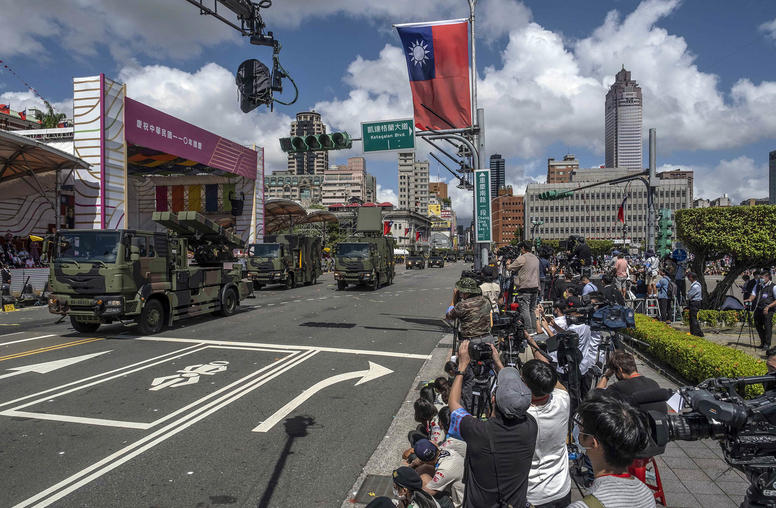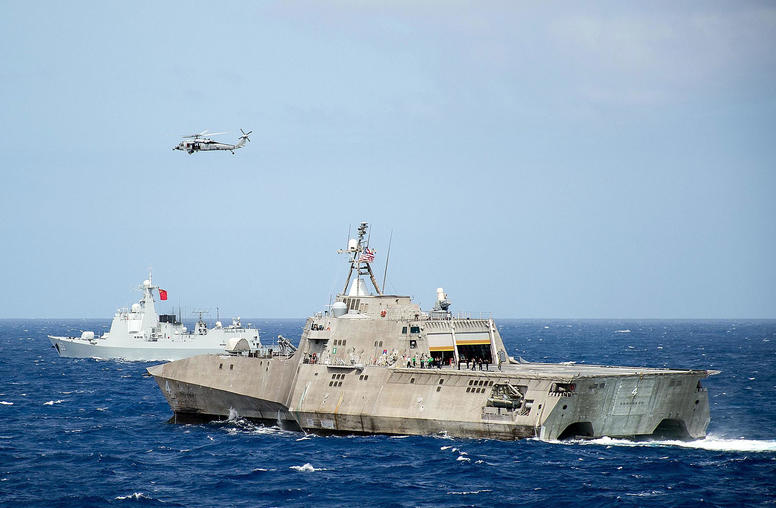 China
China
Against the backdrop of a shifting international order and the resurgence of strategic competition among powerful states, USIP’s work on China has two primary objectives: averting crisis or conflict between the United States and China and working with allies and partners to counter China’s destabilizing behavior in strategically important countries to reduce the risk that the United States might be drawn into costly foreign wars.
Learn more in USIP’s fact sheet on The Current Situation in China.
Featured Research & Analysis

The 2022 Pelosi Visit to Taiwan: Assessing US-China Signaling and Action-Reaction Dynamics
In recent years, the United States and the People’s Republic of China (PRC) have found it particularly challenging to interpret one another’s foreign policy signals. Misinterpretation of each other’s signaling may contribute to a bilateral action-reaction dynamic and can intensify into an action-reaction cycle and escalation spiral.

What’s at Stake for China in the Iran War?
China has major energy and economic interests that are threatened by an escalating conflict. But Beijing may also see some strategic opportunities with the U.S. focused on the war. Ultimately, China is likely unwilling, and unable, to make a serious effort to broker peace.

The Element of Surprise: Space and Cyber Warfare in U.S.-China Rivalry
The 2024 revelations over China’s effort to implant malware in critical U.S. infrastructure by the Volt Typhoon hacking group — as well as the Salt Typhoon group’s successful breaching of at least nine major U.S. telecoms — have renewed concern over Beijing’s constant, ongoing efforts to hack Western companies, governments and non-governmental organizations. Unlike past incidents, like those involving Chinese military unit 61398, which were largely about cyber espionage, the Volt Typhoon group was actively implanting malware designed to disrupt critical infrastructure such as water and power systems.
Current Projects

USIP’s Work on Taiwan
Intensifying strategic competition has left U.S.-China ties at a historic low, and the resulting geopolitical tensions have turned Taiwan into a potential flashpoint for a military confrontation between the two great powers. Amid this complex diplomatic landscape, USIP is working to improve U.S. and Taiwanese officials’ decision-making during a potential crisis by convening “peace games” and “tabletop exercises”; to build a deeper understanding of China’s coercive strategies and capabilities; and to help policymakers develop strategies to deter Beijing from taking military action in the Taiwan Strait.

Crisis Communications with China in the Indo-Pacific
In today’s era of strategic competition between the United States and China, crises are more likely than ever in the Indo-Pacific region. Effective mechanisms are therefore needed to prevent such crises from escalating into armed conflict. To this end, USIP is examining crisis communication mechanisms and negotiations between China and its regional neighbors to identify common issues and themes across countries to provide lessons that can be learned and shared.

Africa-China Early Career Scholars Program
Much of the research that has been conducted on the impact of China’s economic engagement with Africa has focused on their economic exchanges and security engagements in isolation of one another. But few have sought to understand the interconnections between these themes. These interconnections matter, as some Chinese firms are responsible for population displacement, corruption and illegal extraction activities — all of which are factors that can drive conflict.